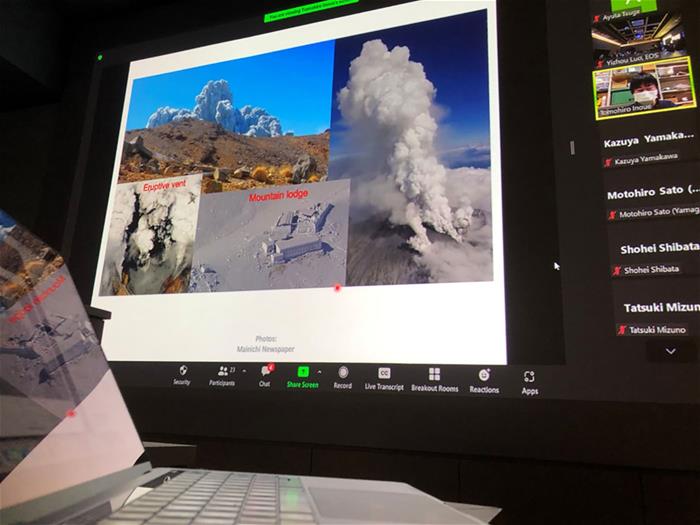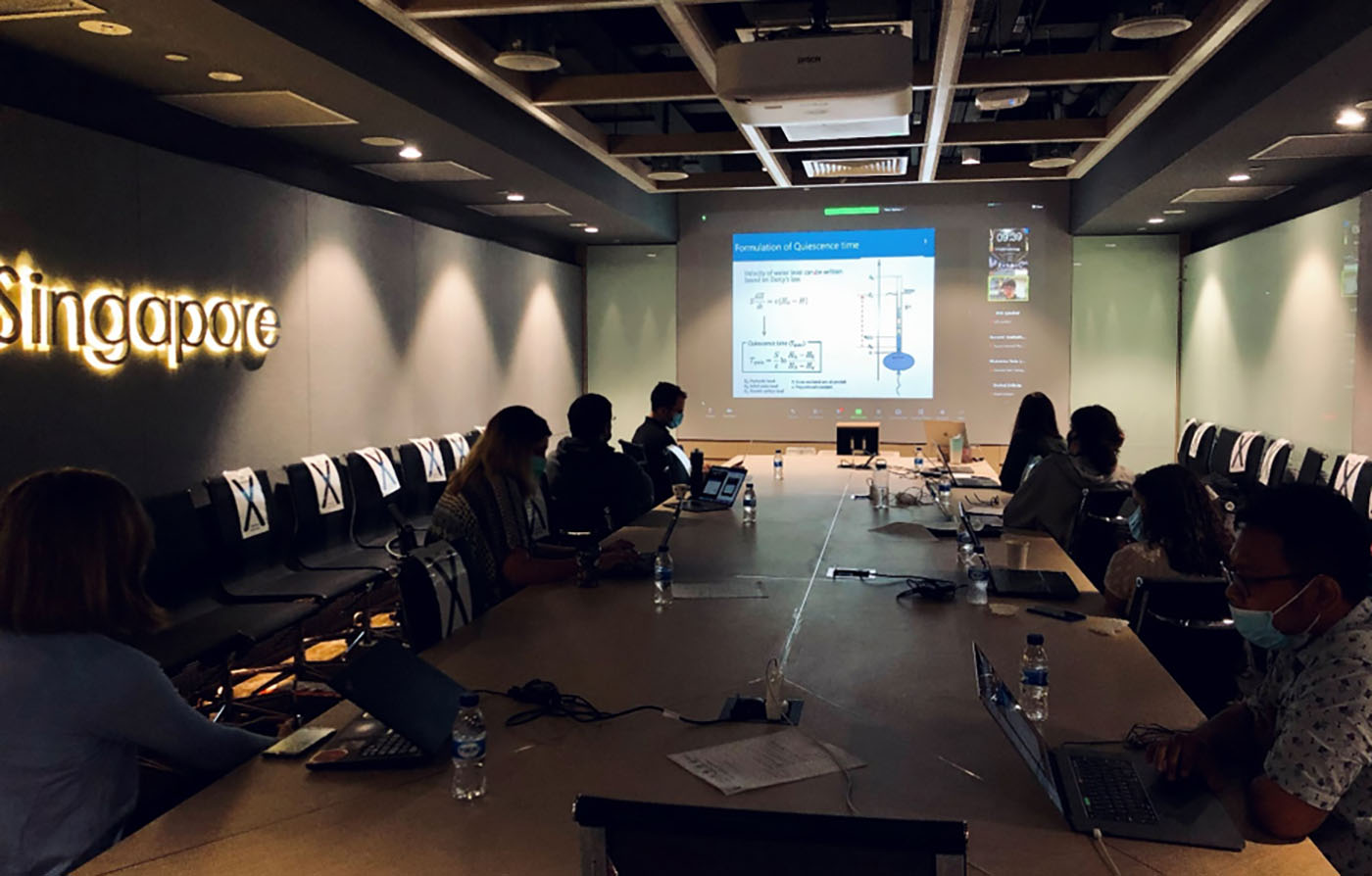The EOS-Japan Graduate Workshop in volcanology, launched in 2019, came into its third year with a two-day workshop held on 8 and 9 February 2022.
Volcanology graduate students from five Japanese universities, as well as volcanology PhD and research staff from the Earth Observatory of Singapore (EOS), met online for the 3rd EOS-Japan Graduate Workshop. During this workshop, participants presented their research and engaged in discussions. Mr Ayuta Tsuge from Hokkaido University participated in this workshop for the first time. "It was a good experience for me to present my research in an international setting. This workshop was a great opportunity to deepen the exchange between (the) Japan and EOS (participants)."
Unlike previous years, this year’s workshop was spread across two days and divided into morning and afternoon sessions. Morning sessions were open to those from EOS and involved Japanese institutions, whilst those in the afternoon were open sessions, where presenters were encouraged to invite external collaborators to join. Given the challenges presented to graduate students and postdoctoral researchers during the pandemic, this year’s workshop offered an important opportunity to present our research to a wider community. The workshop allowed the participants to engage with one another and for the students to develop their research, obtain feedback both on the direction of their future work, and how to communicate their research effectively. It is for this reason that such workshops are important.

One of the items in the programme was an ice-breaker session where Japanese students introduced the volcanoes of Japan and field sites where they work (Source: Yizhou Luo/Earth Observatory of Singapore)
The workshop was comprised mainly of fourteen presentations from Japan and EOS students. These presentations covered a range of topics, including volcano plumbing systems, infrasound, and hazard assessment. Mr Tomohiro Inoue from Hokkaido University, who gave a presentation on the subsurface structure of the Meakandake volcano revealed from a broadband magnetotelluric survey, found this workshop significant. He said, "I learned what doctoral students outside of Japan are interested in and what research they are doing. In addition, it was a good stimulus for me to be given the opportunity to present my study in the international field."
Another change to this year’s workshop was the inclusion of two invited speakers, one of whom is Professor Jurgen Neuberg from the University of Leeds. He supported the workshop by giving a talk on conceptual models in volcanology and, importantly, when we must consider their alternatives. After Prof Neuberg’s presentation, we heard from the second invited speaker, Professor Kenji Nogami from the Tokyo Institute of Technology, about the monitoring of submarine volcanic activity.
As the workshop was a hybrid event, EOS participants presented in person whilst the content was live-streamed for remote participants. We were also able to facilitate in-person discussions without excluding our online audience. EOS PhD student Ms Charlotte Barrington said, "The workshop was a particular highlight for me because I spend all day in front of a screen every day, so this was a welcomed break to discuss research with my peers."
 The workshop was a hybrid event, enabling EOS researchers to participate in person. They are pictured in the EOS meeting room listening to Mr Ayuta Tsuge’s presentation on geyser periodicity study (Source: Yizhou Luo/Earth Observatory of Singapore)
The workshop was a hybrid event, enabling EOS researchers to participate in person. They are pictured in the EOS meeting room listening to Mr Ayuta Tsuge’s presentation on geyser periodicity study (Source: Yizhou Luo/Earth Observatory of Singapore)
Of the workshop, another PhD student at EOS, Ms Vanesa Burgos, said, "I enjoyed this year’s graduate workshop a lot. It was so nice to interact again with our colleagues from EOS and Japan after so long and have fruitful discussions over such diverse topics. One of the workshop's highlights for me was the video of the volcanoes of Japan. It made me feel like we were back in the field and reminded me of how majestic volcanoes are!"
Given that the participants had two productive days learning from one another, we hope that next year, the EOS students and their Japanese counterparts can meet in person for the fourth instalment of the Graduate Workshop.
(Source of thumbnail image: 663highland/Wikimedia Commons)